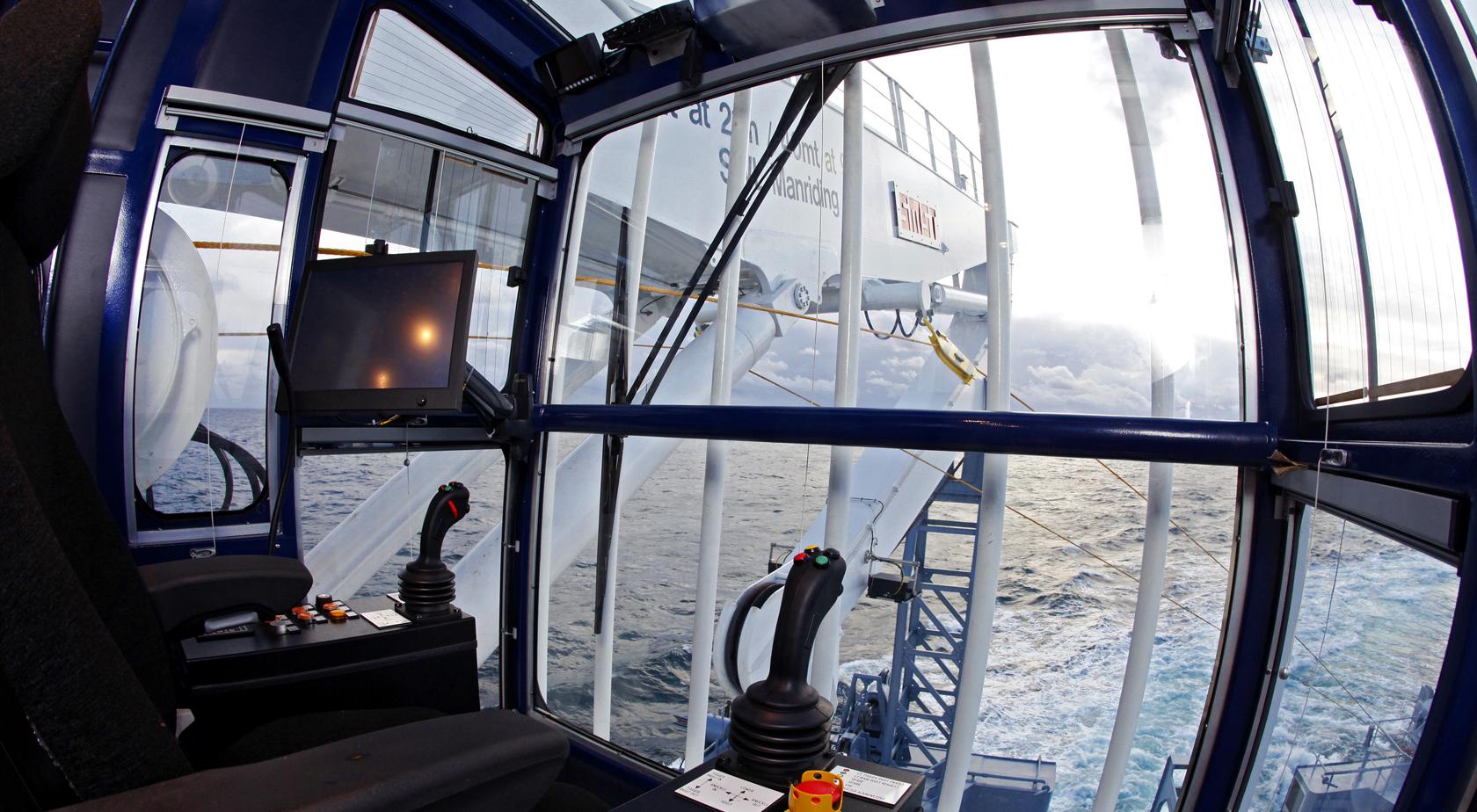
The crane operator: a key role on board an MPSV
Like remote-operated vehicles (ROV) the cranes mounted on MPSV vessels are used to carry out most subsea operations necessary for production at an oil field, such as launching jumpers, hoses, well heads, etc. John Keelty, a crane operator on board the Bourbon Evolution 805, shares his passion for his job with us.
In July 2012, John Keelty joined BOURBON as a crane operator. He discovered the profession in his previous position, and he is passionate about it. "I have held this profession throughout the world, and in different contexts, for both the merchant navy and offshore marine," John says. "Very soon, I learned to operate cranes and developed a deep interest in working on an offshore services vessel."
"I have held this profession throughout the world, and in different contexts, for both the merchant navy and offshore marine."
JOHN KEELTY
Crane operator aboard the Bourbon EVOLUTION 805On the Bourbon Evolution 805, a Multi Purpose Supply Vessel (MPSV), John operates two types of cranes: "The 150 ton crane can lift heavy subsea equipment and then place it at the bottom of the water, to a depth of several thousand meters. The 40-ton crane is able to achieve the same performance but with lighter loads. It is also used to transport parcels from one point on the vessel to another." John also conducts vessel to vessel operations, moving equipment from one vessel to another. To perform his mission, he is installed in a comfortable, fully-equipped cabin : control monitor, radio, video camera for tracking underwater operations, etc.
A STRATEGIC ROLE
Aboard an MPSV, the crane operator fulfills a key role. "The crane is the very reason for existence of such a vessel specialized in underwater operations. A crane that doesn't work, that means a faulty vessel," explains John. That's why, when the crane is not in operation, he takes care of its maintenance: lubrication, cleaning, general upkeep... In the event of a breakdown, an engineer is dispatched on-site.
This is why the skills of BOURBON crane operators are subject to regular reappraisal. "Every two years, we go to certified centers to renew our certification, we relearn best practices and update our know-how. In addition to these mandatory training sessions, there are internal control procedures, to ensure operational excellence for our clients over time," he explains.
Anticipate the risks
These operations, whether subsea or vessel to vessel, are still very difficult to carry out. "You have to be able to control a 150-ton crane and get it right every time, while the vessel is in constant motion. Fortunately, the cranes equipping BOURBON MPSV vessels feature active heave compensation (AHC), which makes it possible to carry out most operations, even when the weather conditions are not optimal," says John.
The crane operator must be able to give the alert, or even stop the operation in case of potential danger.
When dealing with the unexpected, responsiveness is called for. "But errors in judgment have no place because they can be costly, in terms of both safety and budget. You have to know how to make the right decisions, despite the pressure and stress ... In short, I would say this job is not for everyone!"
" When dealing with the unexpected, errors in judgment have no place because they can be costly."JOHN KEELTYCrane operator aboard the Bourbon EVOLUTION 805


